Online Class: Raising Emotionally Intelligent Children — A Guide for Parents

no certificate
with CEU Certificate*
-
15Lessons
-
22Exams &
Assignments -
4Hours
average time -
0.4CEUs
Course Description
Imagine a world where every child's emotional landscape is not just understood but celebrated—a realm where parents possess the extraordinary power to nurture not only intellect but also the emotional fortitude of their children. Welcome to "Raising Emotionally Intelligent Children: A Guide for Parents," where the ordinary trials of parenting become an extraordinary journey of emotional growth and connection, enriching every moment shared with your child.
In today's fast-paced, tech-centric world, emotional intelligence (EQ) is more than a buzzword; it is the foundational skill our children need to face life's challenges, cultivate empathy, and build meaningful relationships. Imagine having the unparalleled insight to guide your children through their emotional storms to sunnier horizons of happiness and resilience. This course is not merely an offering; it is the gateway to transforming your parenting approach—reshaping it not just for the present but for your child's brightest future.
You'll embark on a comforting journey, beginning with the gentle exploration of emotions, transitioning from the innocence of playdates to the profound leadership of peer interactions. You'll traverse the emotional spectrum from joy to jealousy, learning to see each emotional upheaval not as an impediment but as an opportunity to guide, teach, and inspire. Picture yourself armed with a treasure trove of knowledge, engaging your child in conversations where deep breathing becomes their secret weapon against uncertainty, and problem-solving renders them resilient in the face of adversity.
Empathy will become your greatest ally, modeled through everyday acts of kindness and authentic engagement. Witness the transformation in your child as they absorb these lessons effortlessly, like a sponge soaking up life's essential teachings. As you cultivate an empathetic environment, your child learns to offer emotional support not as a duty but as a deeply ingrained part of who they are, fortifying their relationships and their place in the world.
With this course, you'll discover how addressing the root of emotions rather than just behaviors lays the groundwork for empathy and understanding. Imagine your family as a fortress of emotional support, its foundations built on the bedrock of consistent understanding, cultural adaptability, and genuine communication. You will acquire the knowledge needed to help your child navigate social landscapes with poise, reducing anxiety, and fostering a deep-seated confidence that ripples across every future endeavor.
Children's friendships will become fertile ground for exploring complex emotions, facilitated by your encouraging guidance. Imagine transforming conflicts into empowerment sessions, where resolution skills and empathetic communication not only promote social confidence but also combat isolation, paving the way for your child to shine in any group setting.
By blending emotional intelligence with creative self-expression, your child will flourish. Visualize a world where artistic pursuits become a conduit for articulating complex emotions, building a robust emotional vocabulary that empowers your child to weather life's setbacks with grace and resilience. They won't just adapt; they'll thrive in environments curated by you—those rich in emotional adaptability and social-emotional learning.
Through role-playing and mindful listening, you'll help your child become a master of empathy, honing their ability to navigate social currents with ease, understanding, and an open heart. Witness the magic as everyday sounds become a touchstone for mindfulness, bonding, and communication, laying the foundation for a family united in empathy and respect.
The transformative power of this course lies not just in knowledge, but in its capacity to alter familial bonds, turning them into an unbreakable tapestry woven with resilience, empathy, and unwavering mutual support. "Raising Emotionally Intelligent Children: A Guide for Parents" is more than an educational experience—it's a legacy of emotional empowerment you'll pass down through generations.
Seize this opportunity to become the guiding light your child needs to navigate their emotional landscape with confidence and grace. Enroll today and begin your journey toward crafting a future where emotional intelligence illuminates every path your child takes. The promise of a brighter, emotionally enriched tomorrow awaits, and it starts with you, right here, right now.
- Completely Online
- Self-Paced
- 6 Months to Complete
- 24/7 Availability
- Start Anytime
- PC & Mac Compatible
- Android & iOS Friendly
- Accredited CEUs

Course Lessons
Lesson 1. From Playdate to Peer Leader: Navigating Emotional Strength
The allure of technology demands strategies like digital detox in both personal and professional spaces to maintain quality interactions and prevent burnout. By emphasizing face-to-face engagement, individuals can strengthen emotional bonds, boost productivity, and enhance learning experiences.Lesson 2. EQ and Parenting: A Path to Empathy and Growth
Emotional regulation is crucial for handling intense emotions, allowing children to navigate challenges optimistically. Employing strategies like deep breathing alongside problem-solving encourages children to independently address emotional challenges.Lesson 3. From Joy to Jealousy: Exploring the Emotional Spectrum of Childhood
Vulnerability and authentic communication in relationships promote deep, trusting connections by allowing individuals to express true feelings and thereby build mutual respect and loyalty. Consistency, adaptability, and understanding cultural nuances enhance authentic interactions, strengthening personal and professional relationships.Lesson 4. Empathy: Key to Emotional Intelligence in Children
Parents model empathy through their interactions, providing a blueprint for children to learn appropriate emotional responses. By observing everyday acts of listening and understanding, children absorb lessons in empathy, equipping them to offer emotional support and validation to others.Lesson 5. Raising Emotionally Savvy Children for the Future
Recognizing emotions, both verbal and non-verbal, is the cornerstone of instilling emotional intelligence in children. When parents address the root emotional causes rather than just behaviors, they build a foundation of empathy and understanding that supports children's holistic development.Lesson 6. Cultivating Resilience
Educational systems play a crucial role in developing resilience by integrating social and emotional learning into their curricula, emphasizing empathy and communication. Supportive family dynamics and community involvement further empower children to manage stress and confront adversity with confidence.Lesson 7. The Role of Non-verbal Cues in Children's Emotional Development
Emphasizing empathy and vulnerability in relationships has powerful effects, transforming simple actions into deep emotional connections. Trust-building involves consistent, genuine efforts to reconcile and align actions with emotional exchanges.Lesson 8. Identifying and Addressing Childhood Stress and Anxiety
Social interactions are pivotal in a child’s development, and misunderstandings can lead to stress or anxiety. Teaching conflict resolution and encouraging empathetic communication can promote social confidence and reduce isolation.Lesson 9. Weaving Emotional Intelligence Through Childhood Friendships
Friendships are vital for children to explore emotions like compromise, empathy, and emotional regulation, shaping their identity within group settings. Parents and educators need to guide children through social challenges, ensuring balanced emotional development and healthy self-concept.Lesson 10. Emotional Intelligence and Self-Image in Children
Encouraging children to express emotions through art fosters an emotional vocabulary, empowering them to manage setbacks like failing a test with resilience, ultimately enhancing their emotional intelligence. Parents and schools can support this growth by modeling emotional adaptability and incorporating social-emotional learning, creating a nurturing environment for children.Lesson 11. Role-Playing and Real-Life: Enhancing Empathy in Kids
Parents can teach their children emotional intelligence by creating safe environments for self-expression and validating all emotions, which helps children in identifying and managing emotional triggers effectively. By using mindfulness and role-playing, children learn to develop empathy, understanding complex emotions, and use emotional vocabulary to better handle social interactions.Lesson 12. The Art of Mindful Listening
Practices like sound scavenger hunts and sound diaries boost children's sensory awareness and mindfulness, strengthening familial bonds and communication. Integrating such activities at home nurtures emotional intelligence and understanding, laying a foundation for empathy and mutual respect.Lesson 13. From Emotions to Symptoms: The Psychosomatic Journey of Young Minds
Mindfulness techniques empower children to manage psychosomatic symptoms effectively while fostering self-awareness and emotional intelligence. Practices like meditation, visualization, and gratitude journaling significantly contribute to emotional stability, offering tools for stress management and enhanced self-esteem.Lesson 14. Roots of Emotion: Foundations for Emotional Intelligence in Children
Fear acts as a protective response to perceived threats, yet for children, it can arise from unknown or imagined situations like the fear of monsters. Gradually reassuring and exposing children to fears in controlled environments bolsters confidence and competence.Lesson 15. Emotional Landscapes: Nurturing Individual Growth in Children
From early tantrums to school-age dilemmas, children's emotional signals provide insights into underlying needs. By actively listening and valuing their feelings, parents bolster self-esteem and resilience, particularly in moments of disappointment or anxiety.
Learning Outcomes
- Demonstrate the use of problem-solving skills in children's interactions to foster independence and cooperation.
- Describe how deep breathing techniques can help children manage their emotions during stressful events.
- Define emotional intelligence and its role in child development by differentiating between recognizing and managing emotions in children.
- Demonstrate empathy through role-playing activities and describe its impact on developing a child's ability to consider others' perspectives.
- Define and categorize basic and complex emotions, such as joy, sadness, fear, and pride, using provided scenarios to enhance child nurturing practices.
- Demonstrate empathy in emotionally supportive environments by developing an understanding of behavioral and physical indicators of various emotions in children.
- Define empathy and describe its role in enhancing parent-child relationships through everyday interactions, demonstrating a clear understanding of key emotional intelligence concepts.
- Identify specific strategies parents can use to model empathy for their children, explaining how these approaches contribute to the child's emotional growth and social skill development.
- Demonstrate techniques for teaching children emotional regulation, such as deep breathing and mindfulness activities.
- Identify and describe the importance of emotional intelligence in personal development and academic success.
- Define strategies to help children manage their emotions effectively in challenging situations.
- Recognize the impact of supportive relationships on the development of children's resilience.
- Identify basic emotions like happiness, sadness, anger, and fear from verbal and non-verbal cues to improve emotional communication in children.
- Demonstrate mastery of lesson content at levels of 70% or higher.
Additional Course Information

- Document Your Lifelong Learning Achievements
- Earn an Official Certificate Documenting Course Hours and CEUs
- Verify Your Certificate with a Unique Serial Number Online
- View and Share Your Certificate Online or Download/Print as PDF
- Display Your Certificate on Your Resume and Promote Your Achievements Using Social Media

Choose Your Subscription Plan
No Certificate / No CEUs
This course only
| Includes certificate | X |
| Includes CEUs | X |
| Self-paced |

|
| Instructor support |

|
| Time to complete | 6 months |
| No. of courses | 1 course |
Certificate & CEUs
This course only
| Includes certificate |

|
| Includes CEUs |

|
| Self-paced |

|
| Instructor support |

|
| Time to complete | 6 months |
| No. of courses | 1 course |
Certificates & CEUs
Includes all 600+ courses
| Includes certificate |

|
| Includes CEUs |

|
| Self-paced |

|
| Instructor support |

|
| Time to complete | 12 Months |
| No. of courses | 600+ |
Certificates & CEUs
Includes all 600+ courses
| Includes certificate |

|
| Includes CEUs |

|
| Self-paced |

|
| Instructor support |

|
| Time to complete | 24 Months |
| No. of courses | 600+ |
Related Courses
-
 4 hours
0.4 CEUs
Esoteric Traditions and Ancient Wisdom
+ More Info
4 hours
0.4 CEUs
Esoteric Traditions and Ancient Wisdom
+ More Info
-
 6 hours
0.6 CEUs
Introduction to Data Analytics
+ More Info
6 hours
0.6 CEUs
Introduction to Data Analytics
+ More Info
-
 4 hours
0.4 CEUs
Familial Fortitude: Strengthening Bonds from Within
+ More Info
4 hours
0.4 CEUs
Familial Fortitude: Strengthening Bonds from Within
+ More Info
-
 3 hours
0.3 CEUs
Office Staff Productivity Boosters
+ More Info
3 hours
0.3 CEUs
Office Staff Productivity Boosters
+ More Info
-
 5 hours
0.5 CEUs
Building Bridges: Techniques for Intergenerational Understanding
+ More Info
5 hours
0.5 CEUs
Building Bridges: Techniques for Intergenerational Understanding
+ More Info
-
 7 hours
0.7 CEUs
Designing Interdisciplinary Curricula
+ More Info
7 hours
0.7 CEUs
Designing Interdisciplinary Curricula
+ More Info
-
 7 hours
0.7 CEUs
The Capsule Wardrobe: Streamlining Luxury with Style
+ More Info
7 hours
0.7 CEUs
The Capsule Wardrobe: Streamlining Luxury with Style
+ More Info
-
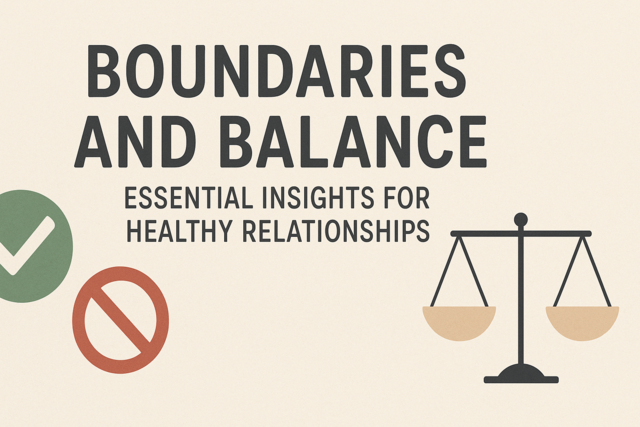 6 hours
0.6 CEUs
Boundaries and Balance: Essential Insights for Healthy Relationships
+ More Info
6 hours
0.6 CEUs
Boundaries and Balance: Essential Insights for Healthy Relationships
+ More Info
-
 6 hours
0.6 CEUs
Creating a Work-Life Balance
+ More Info
6 hours
0.6 CEUs
Creating a Work-Life Balance
+ More Info
-
 6 hours
0.6 CEUs
Supporting Students with Special Needs
+ More Info
6 hours
0.6 CEUs
Supporting Students with Special Needs
+ More Info
-
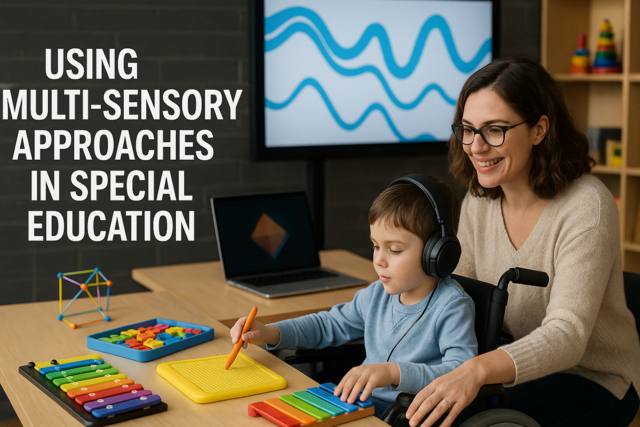 7 hours
0.7 CEUs
Using Multi-Sensory Approaches in Special Education
+ More Info
7 hours
0.7 CEUs
Using Multi-Sensory Approaches in Special Education
+ More Info
-
 3 hours
0.3 CEUs
Family Dynamics Decoded: Understanding & Improving Interactions
+ More Info
3 hours
0.3 CEUs
Family Dynamics Decoded: Understanding & Improving Interactions
+ More Info
-
 4 hours
0.4 CEUs
Job Interview Skills and Techniques
+ More Info
4 hours
0.4 CEUs
Job Interview Skills and Techniques
+ More Info
-
 6 hours
0.6 CEUs
Flawless Finish: Understanding Details in Luxury Fashion
+ More Info
6 hours
0.6 CEUs
Flawless Finish: Understanding Details in Luxury Fashion
+ More Info
-
 6 hours
0.6 CEUs
Healing from Narcissism: Paths to Recovery and Healthy Dynamics
+ More Info
6 hours
0.6 CEUs
Healing from Narcissism: Paths to Recovery and Healthy Dynamics
+ More Info
-
 3 hours
0.3 CEUs
Synergy in Relationships: Creating a Balanced Partnership
+ More Info
3 hours
0.3 CEUs
Synergy in Relationships: Creating a Balanced Partnership
+ More Info
-
 3 hours
0.3 CEUs
Writing Across the Curriculum: Best Practices
+ More Info
3 hours
0.3 CEUs
Writing Across the Curriculum: Best Practices
+ More Info
-
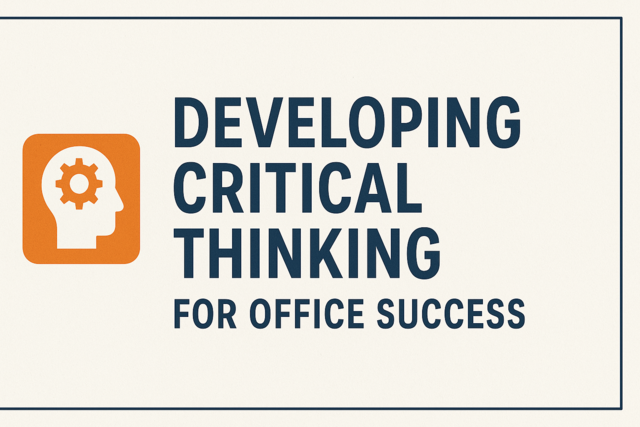 4 hours
0.4 CEUs
Developing Critical Thinking for Office Success
+ More Info
4 hours
0.4 CEUs
Developing Critical Thinking for Office Success
+ More Info
-
 3 hours
0.3 CEUs
Luxury Layering: The Art of Dressing with Opulence
+ More Info
3 hours
0.3 CEUs
Luxury Layering: The Art of Dressing with Opulence
+ More Info
-
 6 hours
0.6 CEUs
The Essence of Elegance: Dressing for Contemporary Sophistication
+ More Info
6 hours
0.6 CEUs
The Essence of Elegance: Dressing for Contemporary Sophistication
+ More Info
-
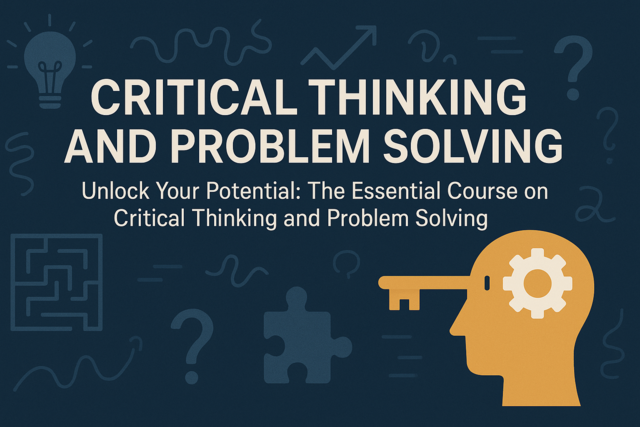 5 hours
0.5 CEUs
Critical Thinking and Problem Solving
+ More Info
5 hours
0.5 CEUs
Critical Thinking and Problem Solving
+ More Info
-
 7 hours
0.7 CEUs
Introduction to Cryptocurrency and Blockchain
+ More Info
7 hours
0.7 CEUs
Introduction to Cryptocurrency and Blockchain
+ More Info
-
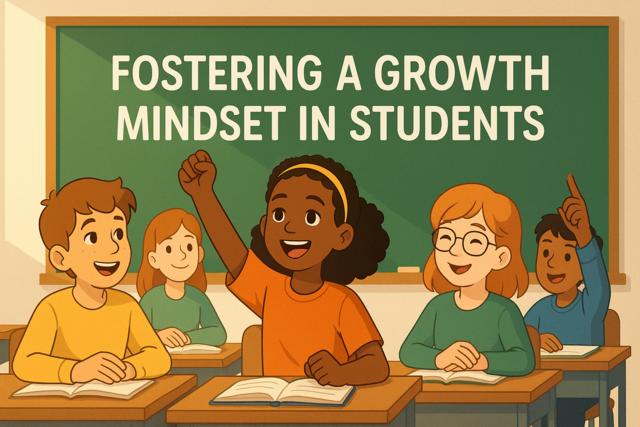 6 hours
0.6 CEUs
Fostering a Growth Mindset in Students
+ More Info
6 hours
0.6 CEUs
Fostering a Growth Mindset in Students
+ More Info
-
 7 hours
0.7 CEUs
Guided Meditation Practices
+ More Info
7 hours
0.7 CEUs
Guided Meditation Practices
+ More Info
-
 4 hours
0.4 CEUs
Business Writing for Professionals
+ More Info
4 hours
0.4 CEUs
Business Writing for Professionals
+ More Info
-
 4 hours
0.4 CEUs
Developing Self-Advocacy Skills in Students with Disabilities
+ More Info
4 hours
0.4 CEUs
Developing Self-Advocacy Skills in Students with Disabilities
+ More Info
-
 7 hours
0.7 CEUs
Promoting Independence and Life Skills
+ More Info
7 hours
0.7 CEUs
Promoting Independence and Life Skills
+ More Info
-
 3 hours
0.3 CEUs
Supervisory Skills for New Managers
+ More Info
3 hours
0.3 CEUs
Supervisory Skills for New Managers
+ More Info
-
 5 hours
0.5 CEUs
Building Emotional Safety Nets: A Guide for Couples
+ More Info
5 hours
0.5 CEUs
Building Emotional Safety Nets: A Guide for Couples
+ More Info
-
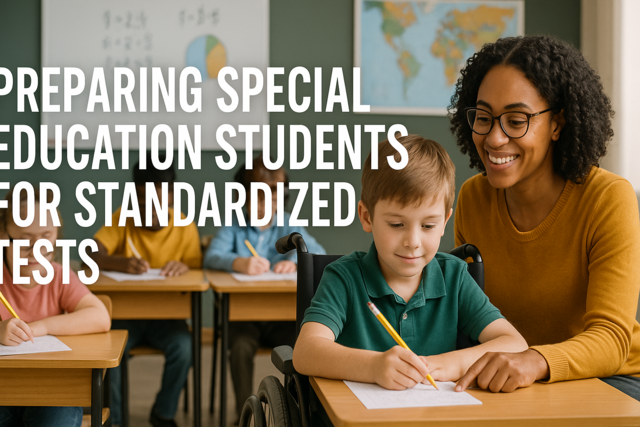 3 hours
0.3 CEUs
Preparing Special Education Students for Standardized Tests
+ More Info
3 hours
0.3 CEUs
Preparing Special Education Students for Standardized Tests
+ More Info
-
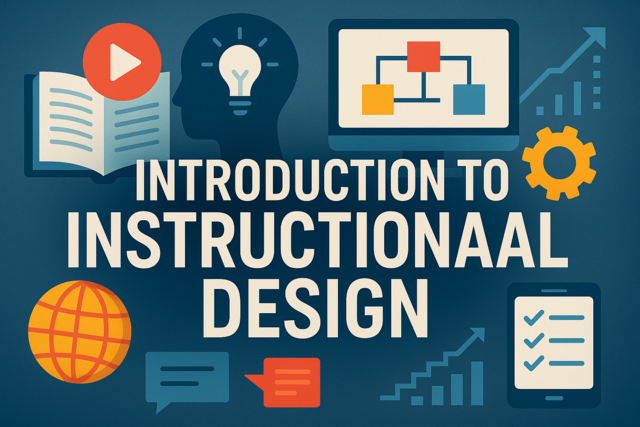 7 hours
0.7 CEUs
Introduction to Instructional Design
+ More Info
7 hours
0.7 CEUs
Introduction to Instructional Design
+ More Info
-
 7 hours
0.7 CEUs
Blended Learning Models in Schools
+ More Info
7 hours
0.7 CEUs
Blended Learning Models in Schools
+ More Info
-
 7 hours
0.7 CEUs
Cultural Perspectives on Trauma: Understanding Global Variations
+ More Info
7 hours
0.7 CEUs
Cultural Perspectives on Trauma: Understanding Global Variations
+ More Info
-
 5 hours
0.5 CEUs
Setting and Maintaining Personal Priorities
+ More Info
5 hours
0.5 CEUs
Setting and Maintaining Personal Priorities
+ More Info
-
 5 hours
0.5 CEUs
Mentoring and Coaching New Teachers
+ More Info
5 hours
0.5 CEUs
Mentoring and Coaching New Teachers
+ More Info
-
 7 hours
0.7 CEUs
Volunteering and Philanthropy Skills
+ More Info
7 hours
0.7 CEUs
Volunteering and Philanthropy Skills
+ More Info
-
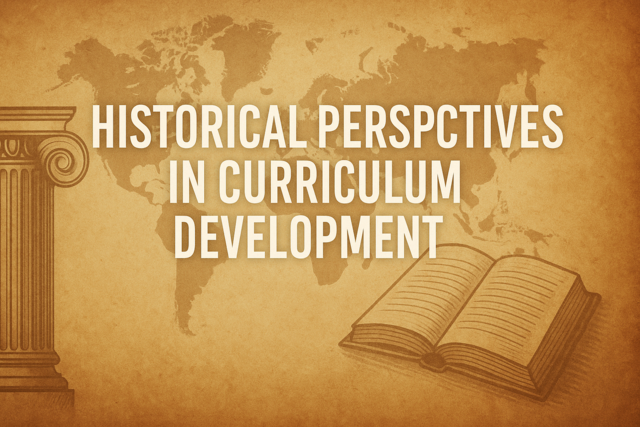 3 hours
0.3 CEUs
Historical Perspectives in Curriculum Development
+ More Info
3 hours
0.3 CEUs
Historical Perspectives in Curriculum Development
+ More Info
-
 5 hours
0.5 CEUs
Coaching and Mentoring Skills
+ More Info
5 hours
0.5 CEUs
Coaching and Mentoring Skills
+ More Info




